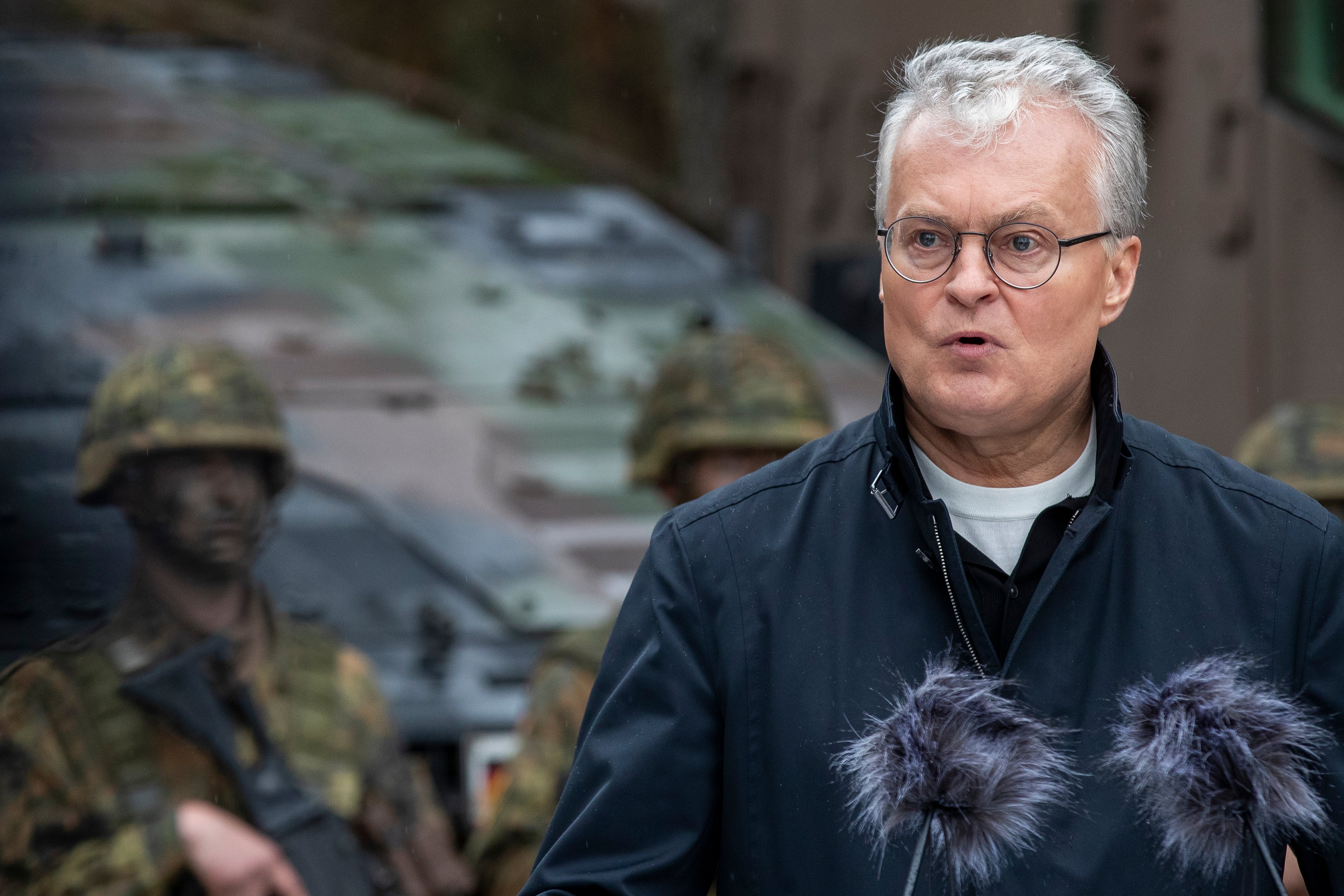Lithuania defends banning Russian and Belarusian observers from monitoring its presidential election
Lithuania has defended the decision not to allow Russian and Belarusian observers to monitor its upcoming presidential election, accusing both countries of spearheading campaigns that “pose a threat to our national security.”

Your support helps us to tell the story
From reproductive rights to climate change to Big Tech, The Independent is on the ground when the story is developing. Whether it's investigating the financials of Elon Musk's pro-Trump PAC or producing our latest documentary, 'The A Word', which shines a light on the American women fighting for reproductive rights, we know how important it is to parse out the facts from the messaging.
At such a critical moment in US history, we need reporters on the ground. Your donation allows us to keep sending journalists to speak to both sides of the story.
The Independent is trusted by Americans across the entire political spectrum. And unlike many other quality news outlets, we choose not to lock Americans out of our reporting and analysis with paywalls. We believe quality journalism should be available to everyone, paid for by those who can afford it.
Your support makes all the difference.Lithuania defended Wednesday the decision not to allow Russian and Belarusian observers to monitor its upcoming presidential election, accusing both countries of spearheading campaigns that "pose a threat to our national security.”
The Organization for Security and Co-operation in Europe — which includes Lithuania, Russia and Belarus— usually sends multi-national observer teams to watch its 57 member states’ elections.
The election on Sunday comes at a time when Russia is making gains on the battlefield in Ukraine, where the war has entered its third year, fueling fears across all of Europe and especially in the strategically important Baltic region about Moscow’s intentions.
Lithuania’s Foreign Ministry in a statement Wednesday said the country had invited OSCE observers to monitor the election "except for the aggressor Russia and its supporter Belarus” and accused them of being a threat to the Baltic nation's political and electoral processes.
It also called on the OSCE to reconsider continuing the membership of “countries that most flagrantly violate international law, human rights, and carry out aggression against Ukraine”.
Last month, the OSCE announced it wouldn't send any observers following Lithuania's decision. It said in a statement that signaling nationalities out of the invite was against the rules of equal treatment of all member states and “in breach of the commitments made by all participating States of the OSCE.”
However, the OSCE expressed “full confidence” in Lithuania’s electoral process, while pointing to the “value of an independent external assessment."
In the elections, the popular incumbent, Gitanas Nausėda, is favored to win another five-year term, competing against seven other candidates. If none wins the minimum 50% of votes, a runoff will be held on May 26.
Lithuania's president oversees foreign and security policy and is the supreme commander of the armed forces.
Among the 2,000 observers expected to monitor the balloting, there are 20 international observers from Latvia, Estonia, Poland, Ukraine, Moldova, as well as representatives of the United States Election Assistance Fund and the International Fund for Electoral Systems (IFES) office in Ukraine.
___
Follow AP's Europe coverage at https://apnews.com/hub/europe